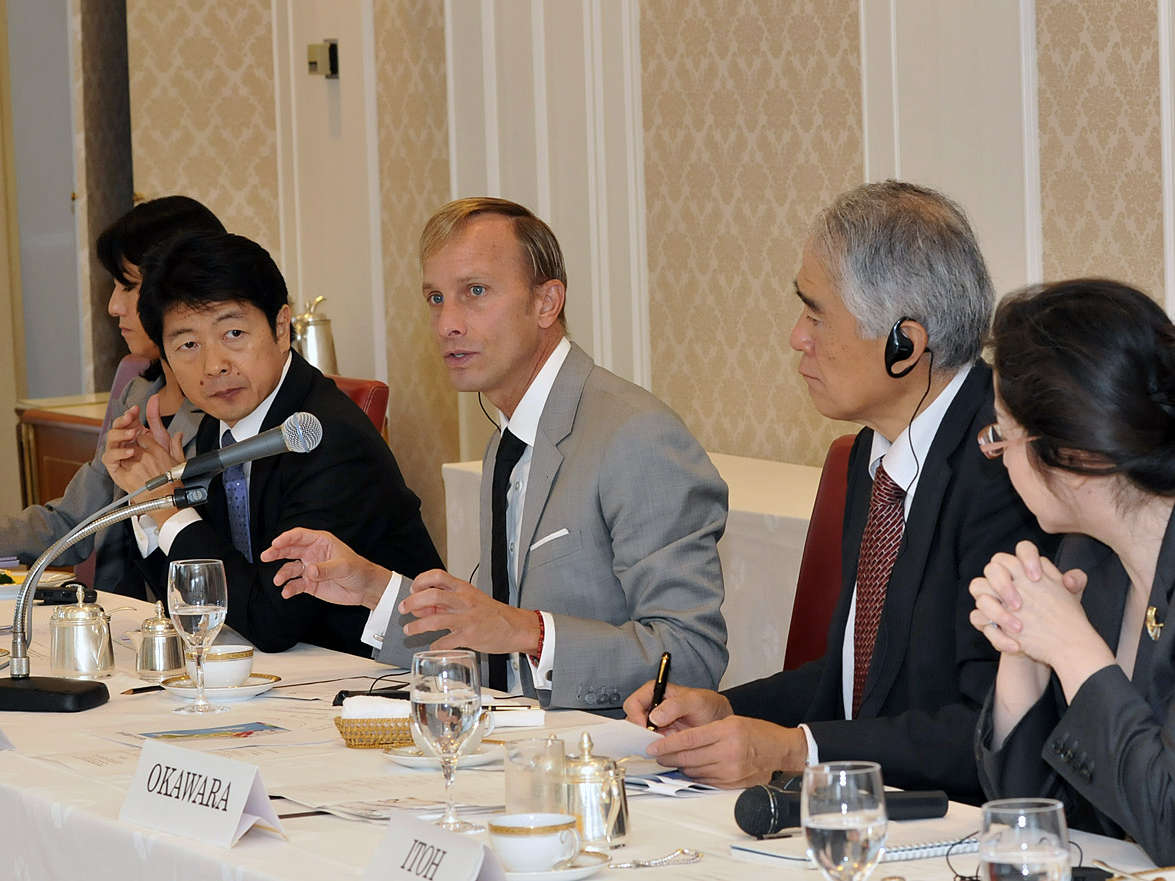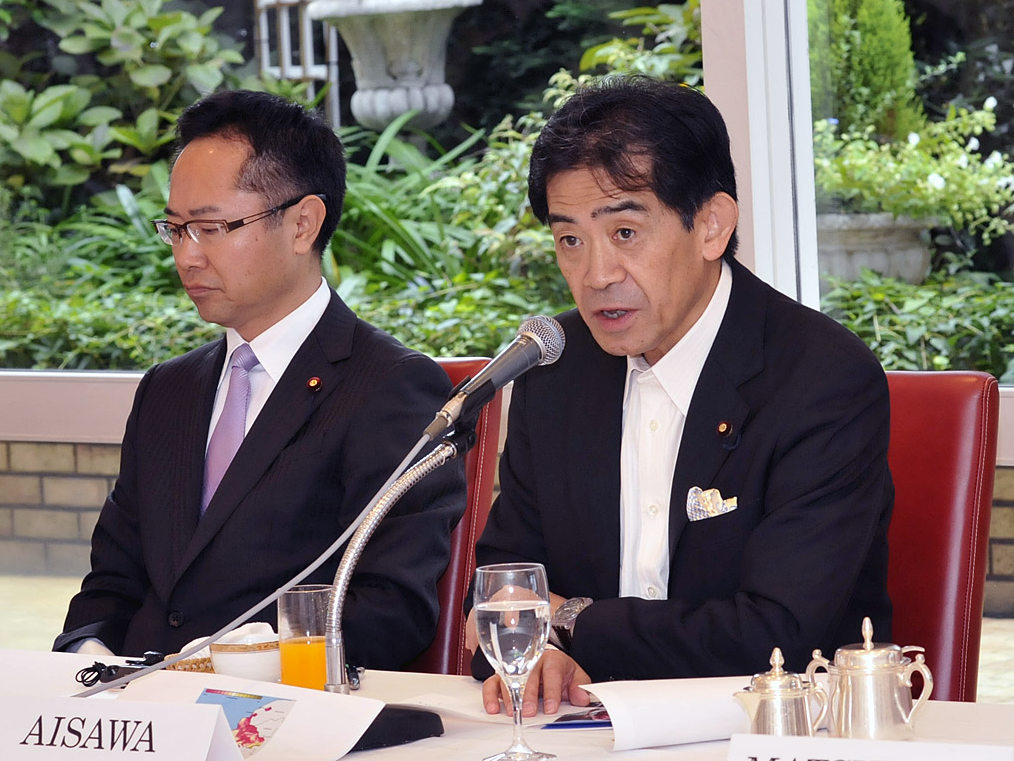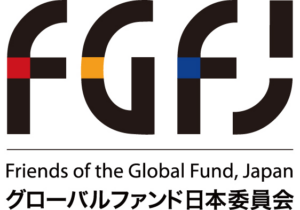Global Fund Executive Director Mark Dybul visited Japan on October 14–16, his third trip to the country since assuming his post in January 2013. During his stay, Dybul met with a range of government, corporate, media, and NGO leaders, all of which were arranged by JCIE’s Friends of the Global Fund, Japan (FGFJ). Also visiting Japan was the Global Fund’s Head of Strategy, Investment and Impact Sam Kunii, who stayed on longer to further cultivate relations with JICA, CSOs, students, and others.
Dybul’s jam-packed schedule included, among others:
- meetings with government officials, including the Hon. Minoru Kiuchi, Parliamentary Senior Vice Minister for Foreign Affairs, and the Hon. Keiko Nagaoka, State Minister of Health, Labour and Welfare
- a meeting with nearly a dozen members of FGFJ’s Diet Task Force as well as distinguished members of the FGFJ Board of Advisors
- a meeting with the Executive Committee on JCIE’s Global Health and Human Security Program, chaired by the Hon. Keizo Takemi, which included remarks by Chief Cabinet Minister Yoshihide Suga
- interviews with a number of Japan’s major media outlets
 Mark Dybul discusses global health challenges with members of FGFJ’s Diet Task Force
Mark Dybul discusses global health challenges with members of FGFJ’s Diet Task Force
The objective of Dybul’s visit was to provide an update on the recent achievements of the Global Fund, the current status of the fight against the three diseases, and the fund’s newly introduced business model, as well as to strengthen the fund’s relationship with Japan, which has been one of the fund’s strongest supporters since its inception. In light of the recent events, Dybul was asked repeatedly about the Ebola outbreak. While the Global Fund does not directly support efforts to combat Ebola, the disease is closely linked to the fight against AIDS, tuberculosis, and malaria. “Physicians and healthcare workers are staying away from work,” he explained. “They’re afraid to go in and work in the clinics because that’s where Ebola patients come.” The fund has therefore been allowing governments in the affected countries to use Global Fund monies to help deal with the Ebola emergency and ensure that the treatment for those with the three diseases is not compromised.
Ebola’s rapid and frightening consequences have drawn the world’s attention, and over the past 10 months, Ebola has claimed more than 4,000 lives. In contrast, although the numbers have decreased in recent years, the death toll for AIDS is still roughly 4,100 people every single day, while malaria claims another 1,700 lives and TB about 3,600 lives each day. Nonetheless, Dybul stressed that these diseases should not be competing for attention. We need to take a long-term perspective and work to strengthen health systems in these countries. He noted, “You can’t defeat one single epidemic; you need to build a system that will defeat those epidemics and that will also be in place for future demands.”

Diet Task Force co-chairs Motohisa Furukawa and Ichiro Aisawa at breakfast meeting with Mark Dybul
Dybul also stressed the importance of universal health coverage and health system strengthening in order to win the fight against the three diseases. He offered the example of Nigeria, where malaria accounts for a $4 billion loss in GDP annually, to illustrate how health interventions can mitigate economic loss and improve growth opportunities and human security. Looking ahead, and particularly toward preparations for the G8 summit in 2016, Dybul called for continued leadership by Japan, which is known for its successful implementation of UHC and its strong advocacy of human security.
To listen to Dybul’s speech at the Japan National Press Club (in English and Japanese), click below:
https://www.youtube.com/watch?v=7S4_OCZsRNg&list=UU_iMvY293APrYBx0CJReIVw
See more on Facebook ![]()
